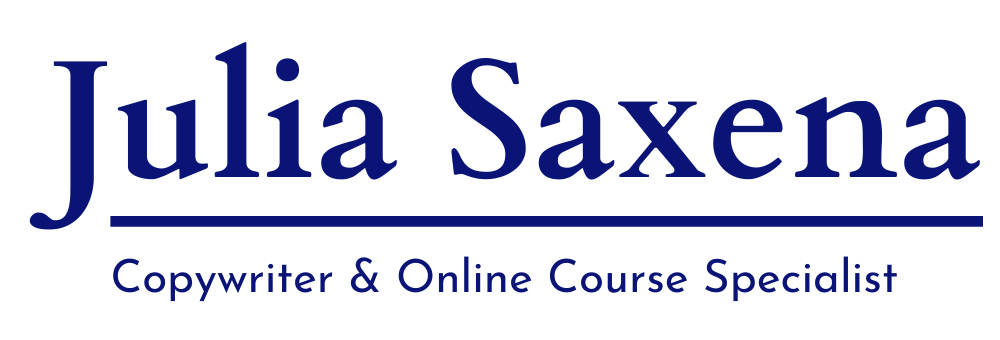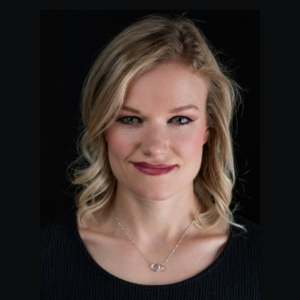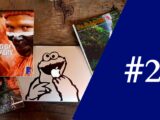Now is the perfect time to leverage the power of video to grow your business and accelerate your career.
Nobody knows this better than Cam Houser, the creator of the Minimum Viable Video course.
For over a decade, he has used videos to win proposals and connect with industry experts as the Founder and CEO of Actionworks, a training company working with businesses such as Apple and GE Aviation.
Having taught entrepreneurship to students in 30 countries as an entrepreneurship educator and University of Texas professor, Cam brings an experiential mindset to teaching.
His action-focused approach already proved successful in the 3 Day Startup, an organization he founded that supports 15,000 entrepreneurs at 300 schools, including Harvard, MIT, and Stanford.
Now he’s on a mission to help you realize your potential and make a dent in the universe using videos.
In this conversation, we talk about:
- What dogfooding is and how it has nothing to do with dog food
- Why launching a new online course is nerve-wracking and amazing at the same time
- Why Cam got into video and teaching in the first place
- His non-traditional approach to teaching that accelerates learning and what part community plays
- What you can achieve when you start publishing videos and why you can’t achieve the same by writing blog posts
- The long-term vision for Minimum Viable Video
Full transcript
Cam Houser: The reason it’s called dogfooding is that if you use your own product, you’re familiar with it, right. So Bill Gates and Microsoft made a phone, a smartphone. But all the Microsoft employees were using the iPhone. So Bill Gates banned the iPhone. He said, you can’t have an iPhone at Microsoft. And this pissed everybody off. It meant that they had to use the Microsoft phone, which was terrible. And that’s how they knew internally just how bad the Microsoft phone was.
So by us using video to sell our course on video, it’s proof for people that we practice what we preach, and just how much we believe in this medium.
So one of the core aspects of our system is called the Hello video, which is an informative video, you send your friends and family. And it’s just to get you some experience on camera. What’s so interesting is that, even when you don’t talk too much about business, you have your face, your warmth, and your voice out there forming a connection with video.
As we’re selling this course, people have responded saying “hey, I love getting a video that was just meant for me. It wasn’t faceless and meant for everybody. It was meant for me. It made me feel great.”
I love it when a business can connect in a very human way. I’m a businessman, and I like that kind of stuff. I think business at its core is about people, friendships, and connections. I love it when it can be that way. I really hate the impersonal kind of stuff. And especially the huckster kind of oversold marketing stuff. So I love it that we’re using video to sell our course. I think it’s a really cool manifestation.
Julia Saxena: Yes, absolutely. So, for our listeners: This is Cam Houser and I’m Julia Saxena. We are launching a course together called Minimum Viable Video that starts on November 17. And we just want to have a conversation exploring how the launch of the course is going. What’s special about this course, and why now is the right time for people to start getting into video.
What I found interesting about what you just said was that we’re using personal videos to drive sales. So, how are you reflecting on the launch so far? What have been the highs and the lows?
Cam Houser: First off, I’m super pumped to be here in this conversation because I love this kind of work. So again, thanks for the opportunity, and I’m excited, we’re building this thing together.
As for the launch, here’s the thing about launching anything: It’s impossible doing it without it being a huge pain in the butt. And without getting nervous about these things. There are people who I admire in the education, edtech, and the startup world, who no matter how successful they are, they still think it’s a pain. But the reason it’s a pain is that you’re doing really, really good work. So I’m loving it.
It’s definitely been stressful. But it’s just one of those things where I’m a big fan of starting sooner than you’re ready. That’s my educational philosophy as well. You’re going to learn something along the way.
And this launch has been no different, right? There’s some stuff we planned to do all along. Like we certainly planned to use video to sell his course on video. But other things like building custom animations to sell the course or guest speaking in other people’s courses or doing more podcasts. I hadn’t thought of that but it’s already been a joy.
It’s been fun to have my cat pinky play a pivotal role in the launch. When we started I didn’t think that my cat was going to be featured on national television in Belize. Yet that has happened. It’s the things you would never expect but you get great learning from it.
And it just makes me happy that we’re charging ahead and powering through it versus over-strategizing and over-theorizing for weeks and months and years, which ironically, I think is something people do before they get started.
I think this is a nice segue into exactly why we’re building this. To give people a structure and a process to learn video and have it advance all the work that they’re doing.
Julia Saxena: Yeah, exactly. I like what you’re saying that when you feel kind of nervous about something and you’re very excited about it, that’s a sign for you that you’re building something really exciting and that you’re onto something special.
So what was the trigger in the first place that made you want to build this course And teach people about video?
Cam Houser: This goes back to why I got into video in the first place. The reason was that I got Fibromyalgia. It’s a kind of chronic illness that affects your soft tissues.
I was a musician and played in a lot of bands. And this started getting in the way of my ability to play instruments. And then it started getting in the way of my ability to type.
I’ve always aspired to be a creative person. And I just like making things. I have this weird feeling of not wanting to be just a consumer. I don’t want to just have information and content and entertainment go into me. I feel like I’m making a better mark on the universe when I’m also producing.
So the channels I had to produce was going down. But video was available to me because it didn’t cause me any pain to talk. And so I started doing it very informally, just with friends. And then as I got better, I spend more time reading books, watching YouTube videos to learn this art.
Being in front of the camera, I started using it in other avenues in my work life as an entrepreneur, trying to grow my business, working with different startups. And then really interesting stuff happened. And we’ll get into some more of these stories.
But I had situations where I got really great opportunities by using video to get in contact with people who I cared about and wanted to interact with or do business with or a company I wanted to partner with, or a big customer I was trying to sell.
And once video started giving me all these benefits and advantages, I was like “wait a second, my background is that of an entrepreneurship educator and education entrepreneur. I bet other people would like this.” So I started testing and started teaching this stuff to my friends and they started getting results immediately. They started realizing that it’s really powerful to send someone a video. That was when I had the spark that combined with a community-driven course like Write of Passage (this phenomenal class about learning how to write online) and my previous experience as an education entrepreneur, it all came together. I realized there was something big here. And that was the motivation that really led me to start it.
Julia Saxena: I would love to dig a bit deeper into that and into your teaching approach. Because I get the feeling or I already know that it’s a bit different than maybe the classic professor style. So can you tell us more about how you’re planning to run the course?
Cam Houser: I could talk about this all day. But I won’t. I’ll keep this at a reasonable length. So my grandfather was a principal in high school. He ran a high school, and I was never a great student. I was always fine. I was just very much in the middle. In my first jobs in my 20s when I was working at startups, I learned so much from being in situations where I could do something.
I realized that while I’m much better in this environment based on doing rather than the academic environment. But for career reasons, I went to grad school. And in business school, they were teaching startups and I had just come from the startup world. So I felt like I knew that world really well.
But what they were teaching was so theoretical, and so high level and abstract. It wasn’t really connected to results. And it just drove me crazy. I had just come from the trenches of a fast-growing startup. I was the fourth employee in a company that grew to 120 people. So I had learned a ton. But what I was hearing were extremely oversimplified frameworks and models that didn’t resonate.
So I said, “You know what, I don’t really like this.” I met some other students, who were also grad students and felt the exact same way. We started this organization called 3 Day Startup. The whole premise behind this company was that the best way to learn how to be an entrepreneur, a startup founder, is to start a company. Even if you start the dumbest company with the worst idea ever, you’ll learn more than from reading a case study about Facebook, or Snapchat.
This started as a student organization and we turned it into an organization at the University of Texas that then became a company in Austin. And then we started closing more and more deals and selling to universities, to the point where I was the founder and CEO for a decade.
by the end of that decade, the company was in 50 countries. We’d run the 3 Day entrepreneurship program 500 times. It was all about doing. And I think the success of that company was validation of the model of pragmatic learning by doing instead of simply giving someone the answers.
Instead of giving you the answers, we’re going to give you an opportunity and a structure and a space to do and in the doing part of it, you’ll learn. So that was a really big deal. There’s an interesting connection to my world as a professor. I’ve always loved helping young people realize their potential. It’s always been that way and it has motivated me a lot. There was some interesting opportunities to help guest speaking classes as I was doing this work because we were so connected to universities.
What’s interesting is that when I was in grad school, getting my MBA, I had to take accounting. And I got the worst grade in the entire accounting class. A few years later, after doing some guest speaking, the folks at University Texas asked if I would teach entrepreneurship, and I was interested in that because I love that kind of work. Also, my biggest customers were foreign governments. And foreign governments love it if you’re a professor at a tier-one research university. It gives you some social capital and prestige to help you close deals.
So everything was lined up here. But what I just love is that the first course that I taught as a professor, was in the exact same classroom where I got a D in accounting. So for me, it was a very interesting validation of my philosophy of education that when I was a student, I was failing, yet this pragmatic approach based on doing worked.
In fact, you don’t need all the answers. You don’t even need to learn from subject matter experts. Your own experience and collaborative learning can make someone be fantastic. The success of this model meant that they asked me to come teach. And I was literally in the exact same classroom where had failed. So it’s quite a turnaround and a great validation of that model.
But I think that higher ed, and just the education system in general, leaves a lot to be desired. I feel like the world of technology has evolved. I feel like YouTube is a phenomenal learning platform. And when people think of YouTube, they think of cat videos. You know, I love cat videos. But there is such great learning.
For example, in the NBA, NBA players grew up watching YouTube clips of other NBA players. No one in the education world talks about this kind of stuff.
What I love about Minimum Viable Video is that it combines all my experience as an educator in the traditional educational system and all of my experience outside of that of which I have a lot. This course combines the best of both worlds, along with having a background as a startup entrepreneur and a technologist.
So it’s just combining all the things that I think make it most effective. One thing I loved about teaching 3 Day Startup was that students would say, “Listen, I learned more in three days than I did in my entire college career.” Well, this is exactly the same thing that we’re doing just with a better community and better technology.
So I know that was a long-winded answer, but I get really excited about this stuff. And I can just go on forever about it.
Julia Saxena: I love it. We both have been in Write of Passage and have seen the power of working and building together in a community and growing together.
Can you tell me more about the community aspect, of working together and giving each other feedback along the way, and how that helps people improve?
Cam Houser: So, feedback community is a weird word. And there’s a reason that a lot of courses don’t lead by talking about that because community is a very soft word. When you hear about online communities, a lot of times that’s how they describe social networks as well. For example, the YouTube community. There’s plenty of racist comments on YouTube. So it doesn’t always feel like a community.
But community just means that you are getting the learning from the full set of people. It’s not just the expert in academia (they call this the sage on the stage), the idea that a smart person with a PhD comes in and tells you how it works. That is not a community-driven approach to learning.
The community-driven approach to learning is that as the leader of this course, I’ll say something interesting. But then you might say, “Cam, that’s great. That reminds me of this one time I saw this.” And that thing that you add to the conversation is more useful to the audience than what I said.
I think one of the reasons some professors don’t like this new approach to learning is that it takes some of the power away from them, some of the prestige away from them. Honestly, it’s the wisdom of crowds, the idea that the collective brainpower of 30 people is better than the brainpower of one genius. I agree with that very, very strongly.
And I’m able to see that firsthand in the companies that I’ve run. Especially with 3 Day Startup. This entrepreneurship program had exits to Google and Etsy. We had a companies raise a total of 180.7 million. The leading payment processor in Southeast Asia came to this program, the first and most successful ride sharing company in Germany before Uber was a thing came to this program. So we had lots of successes that validated this model of learning.
The other thing is… if you’re trying to make your dent in the universe, if you’re trying to grow your company, if you’re trying to be great in your job and make an impact. Sometimes that can be lonely, right? Sometimes it’s not the information that’s the problem. Sometimes the problem is also you just want to be surrounded by people who get you and video is very much one of those things, right? My friends are kind of sick of me saying, “Hey, watch my video, give me feedback on it”. Whereas when you’re with a community of other people who also care about video, they’re happy to do that.
I’ve been able to cultivate this sort of thing externally on my own, because I’ve been doing it for a long time. But at this point, just from my previous experience, and who we’re attracting for this course, it’s a community of people who give you feedback. And it can be useful.
You know, we’ll have all kinds of different people in this course. We’ll have some college students up to professionals who are three decades deep into a very successful career. And they have very different perspectives they can offer. And that they can give you good feedback.
Startup entrepreneurs live and die by feedback, being able to assess it and gauge it correctly. And we’ll be doing the same thing giving a framework of how to deal with that. Feedback is what makes a video good.
Another thing that you and I have talked about allegedly is the spotlight effect. An example of this is… what I learned early on video is that I would have my hair in the wrong place or something like that. And I think, “Oh, I need to re-record the whole video.” And that’s hard, right? Well, it turns out a lot of times people don’t notice those things. And instead, they notice something totally different. They will notice that you’re speaking too fast or speaking too slow.
Or some days when I’m filming, I would see that I had spilled some food on my shirt. And I’d be like, “Oh, god. All the footage wasted.” But no one notices. Feedback from a community allows people to tell you what’s memorable about your work, and helps you hone in on what’s important. It’s so easy to go down the rabbit hole of all these other things that don’t really matter.
The best way to get this is not by thinking harder about it, or reading blog posts about it. The best way to do this is to make content that people watch. And one of the things that I’m really pumped about is we’re creating this incubator where people can give you feedback on it before you share it with the world.
Because as you know, when you’re in the early stages making something and you share it with the world, it’s scary. What if they tell you that the thing you make – your babies you care about so much – they tell you that’s really ugly.
You know what I think is also really cool? There’s some kind of security and safety in getting this good group of people together, who’s roughly at the same level. We’re all peers together in this journey. I think that’s really a key part of online learning. Higher education often doesn’t understand the power of bonding people together in that way.
Julia Saxena: I can very much relate to that. When I started creating online, I would never have continued publishing if I wouldn’t have gotten the feedback and encouragement from other people. Because you’re always thinking “Is this even any good what I’m putting out?” But if there’s one person that says, “Yeah, this is good, please keep doing it.” That means so much.
Cam Houser: In the early days, your videos are a huge deal. In the early days, someone saying, “Hey, thanks for making this.” That’s a really, really big deal.
Back to my educational philosophy, there’s this fancy term called the Yerkes-Dodson law. It’s an educational term that says, there’s a certain amount of anxiety a learner should feel. It doesn’t mean anxiety like having a panic attack. It means how much emotional charge they have when they’re learning. Here’s the thing: if they’re too hyped, and they’re too nervous, they don’t learn enough. If they’re too laid back, and they’re too relaxed, they don’t learn either.
There’s an optimal state. That’s another thing I’ve learned as an educator. Managing that state has been more important than communicating the right information. So if I can manage that state, and I’m pretty good at this point, because I’ve been teaching for a long time, if I’m creating that right spirit in our cohort, we’re cruising. Motivation is high, and we’re really energetic and charging ahead. That’s what fuels you to keep going.
Whereas if it feels too relaxed, then people don’t always get their assignments in. But if they’re too tense, because I’m being a drill sergeant, that’s not really the spirit either. So there’s something that again, I don’t think a lot of normal educators can really fathom. A lot of them think, “Oh, well, I need to get up and give a lecture on this topic.” And that’s just one more reason why I don’t really believe in lecture-based education.
Julia Saxena: What I found in that regard is that what motivates people and gets people pumped is to work towards a common goal. With video that’s showing yourself and becoming more public. You used the term cloning yourself. So what do you think is the best outcome our students can achieve with videos?
Cam Houser: That’s a great question. It’s a varied outcome. Every outcome depends on the person. But all of them involve being able to be more productive, be more effective and advance at whatever it is they care about.
So there’s one gentleman who’s strongly considering taking the course. And he wants to build a wine channel. That’s not really connected to his growth as a professional, but it’s connected to his growth as someone who can enjoy life, which I thought was interesting.
Most of the wiring of this course is around how to grow your career, or how to grow your company, if you’re an entrepreneur. And this gentleman just wanted to make sure that he was producing, and being creative, but also in a way that seemed modern. He didn’t want to become a blacksmith or start making leather in his garage, right. He wants to start a channel.
Other students are setting goals to distinguish themselves. Some of them are at the beginning of a career, and they’re working. And that’s fine. They’ve got a job title. But right now, if they were interviewing for their next job, they wouldn’t have anything that really makes them unique or interesting compared to other candidates. Whereas they now get the vision that if they have a history of producing thoughtful, professionally done videos, that are online, reflecting their ideas, their worldviews, and doing so in a high resolution way. They know that’s the kind of thing that when an employer googles them, they’re gonna see.
And back to entrepreneurs. They need to be able to tell their story. And maybe it’ll say why their product or service is better. And right now they have some of those pieces, but they’re not all nicely assembled. The promise of what we’re offering is that when they’re done with this course, they’ve got elegantly produced, really well delivered stories that tell what it is they do.
Maybe you’re an accountant. And there are lots of accountants. So how do you explain why you’re unique and really good at what you do? A resume is one thing. But this accountant can say, “Listen, I had a customer who hadn’t paid a client who hadn’t paid their taxes for three years. That means there’s gonna be some challenges with that. So what I did was not only give them the strategy, but I helped them emotionally navigate the fact that clearly they were procrastinating on something big here for a reason.” These are the sorts of things that don’t show up in a job interview or on a resume.
But having that sort of thing online is something that a new client will see and say, this person clearly has gifts beyond just the simple skills of being really proficient in Excel. I think everyone gets how powerful video can be.
What we’re doing is giving people the expertise, structure, accountability, and it’s just a lot more fun to do with a group of people. We’re giving them all of that. And that’s what I get really excited about when I think about what you and I are building.
Julia Saxena: Let me challenge you there a little bit. Why can’t anybody accomplish that by just writing blog posts instead?
Cam Houser: Okay, so a blog post is confined in something called text. There’s no richness there, right?
I live and die by email, like any modern professional and writing really thoughtful nuanced emails for me is quite difficult. Whereas when I’m on camera, I can show facial expressions. And by the way, I had to learn how to do this, right? If you ask, why do we need this course to learn this stuff, I spent so much time on YouTube having to watch a million tutorials and learn all this stuff the hard way. Where we are now with the kind of technology and all the hurdles I had to go over to bottle it all up and distill it down.
There are a lot of blog posts out there, right? Video conveys you a lot better. One of my beliefs is that we don’t really want to connect with companies and large brands. We want to connect with human beings. Video is the richest medium for that. You can convey laughter and joy and smiles and frowns and it just does that so much better than writing.
Also, once you get good at video, you can produce it at a much faster rate. Quality writing is a very slow process. Whereas video, once you get the muscle memory in place, and your production setup (all the stuff we’re going to teach you) it becomes a very, very fast medium, and that’s what I think is really exciting about it.
Julia Saxena: I’m sold out. But what if I’m super awkward on camera? I feel really shy. And I don’t know what to say.
Cam Houser: I think that is actually a very legitimate concern. Because we’re all born with different skills, right? Some people are incredibly magnetic and just light up a screen. For other people, it’s a struggle. It just doesn’t flow when they’re in front of a camera.
I very much believe that everything is learnable. But some people get things instantly and other people need more time. Then I find some people are really magnetic, but the technical side of it is incredibly intimidating to them. What I like about experiential education and learning by doing – the kind of the way I teach – is that if you already know how to light up a room, we can give you the technical and the other kind of things to work on.
Whereas if you are more technical, we can give you the other sides of things. And I’m just using delivery performance and technical skills interchangeably. There’s plenty of other areas: there’s the visual of how you frame things, there’s the content of what you actually say. The point is that experiential education means you get to learn the thing that you need.
That being said, some of you, if you want to get good on video, and you suck at it now might suck at it for a while. But the thing is, you need to suck at it to get out of that stage. And what I like is that if I’m going to suck at things (I still suck at plenty of things), I like doing it with a community of people that I feel some kind of trust with.
That to me is another really important thing about online education. I want to build that sense of community and sense of support in the cohort, which is great in this style of education. It’s hard to do that in the formal higher ed college because everyone’s competing for the same grade. Whereas this is a positive sum game.
So you may just suck at being on camera for a while. And it might go longer than you want. But that’s the only way to get through that. The other thing is that you may find out that even though you can get over being on camera, you really dislike it. There’s something about it that just saps your energy. And in which case, you can try a style known as a video essay. Write a video essay and have animated graphics, and you are never actually on camera. It’s just your voice, right? Or you write it and you hire someone else, like a voice performer, to read out what you wrote.
These are all the things that you can learn by going through this process. You want a structured framework to figure out what works for you. But it might not. That’s your thing. I think again, everyone can learn this.
Julia Saxena: Where do you see Minimum Viable video going? What is your vision for the course?
Cam Houser: Something I’ve noticed in a few online communities, including Write of Passage is these really strong partnerships being formed. A brain trust of people. I think you and I are that in many senses, right? You and I have complementary skills and this course brought us together. We have complementary skills that allow each of us to focus on things we’re good at and support each other.
I want Minimum Viable video to build similar types of relationships between people, and at mass. I want to empower people to improve their careers, and get really good at this medium and get the benefit and financial gains and all the good stuff.
In addition to that, have them connect to a great community of people. I think that’s also the thing that can’t be copied. It’s, again, not an informational problem. For example, let’s say that I was making a really big pitch to someone. And of course, I nailed the video, but I need more help with my written communication. I could ask you for help. And you would help me.
In the same way, let’s say that you had an intro video you were creating, and just needed a little help on the music side of things and I could help you with that, right? You and I have that sort of partnership. And I want to spawn more of those types of partnerships between more people so that they have other folks like that can help them be more impactful.
I feel like in some ways, the way I approach the world, it’s not fair. It’s like I have these great groups of people behind me that I can ask for advice and guidance. And I’ve done that by developing their own skills and trying to pay it forward and be helpful and collaborative. But a lot of people in their professional lives, they’re just navigating it solo, right? They have themselves and they know how to google things.
Maybe they haven’t set up those sorts of friendships or they have no peers who work in their industry. Whereas I love cultivating really smart groups of people. And I think that’s another kind of way human beings are gonna interact. So I want to build that and just to get more concrete, I want to have larger and larger cohorts. I want more and greater output coming. And I want the internet full of brilliant, insightful things that are advancing the lives and careers of all kinds of people who are just realising they can do more than they thought they could.
Julia Saxena: Awesome. I’m super excited to get started and to transform our students’ lives with video. Thank you so much for coming and having this conversation.






